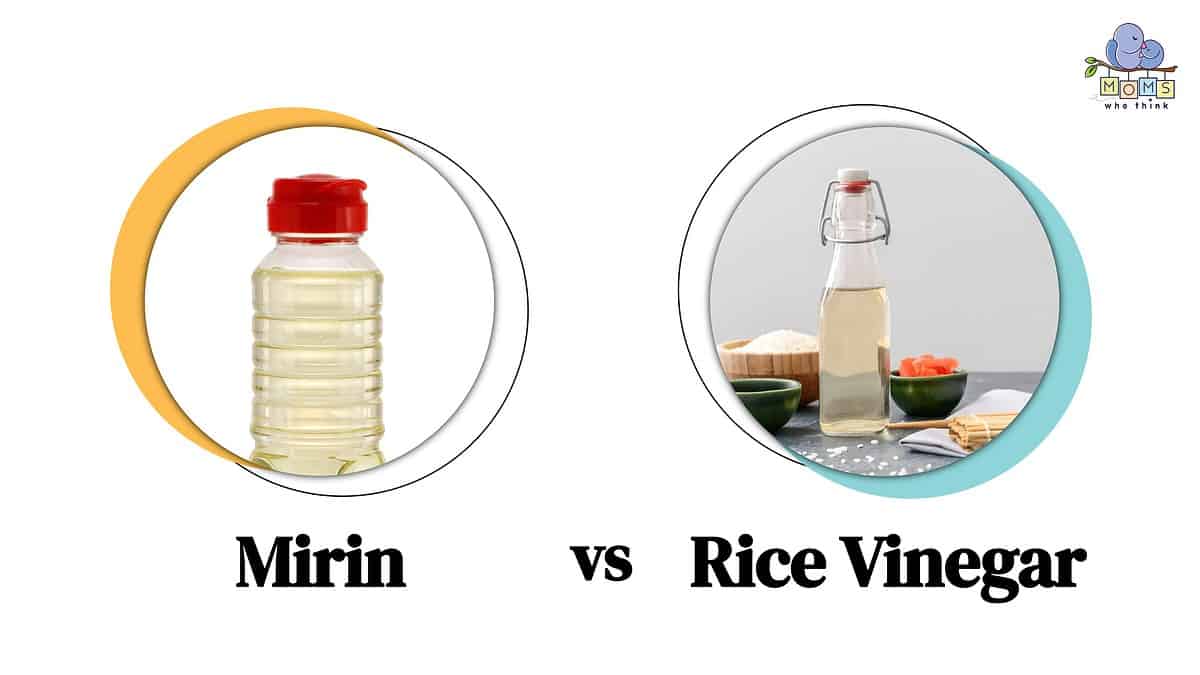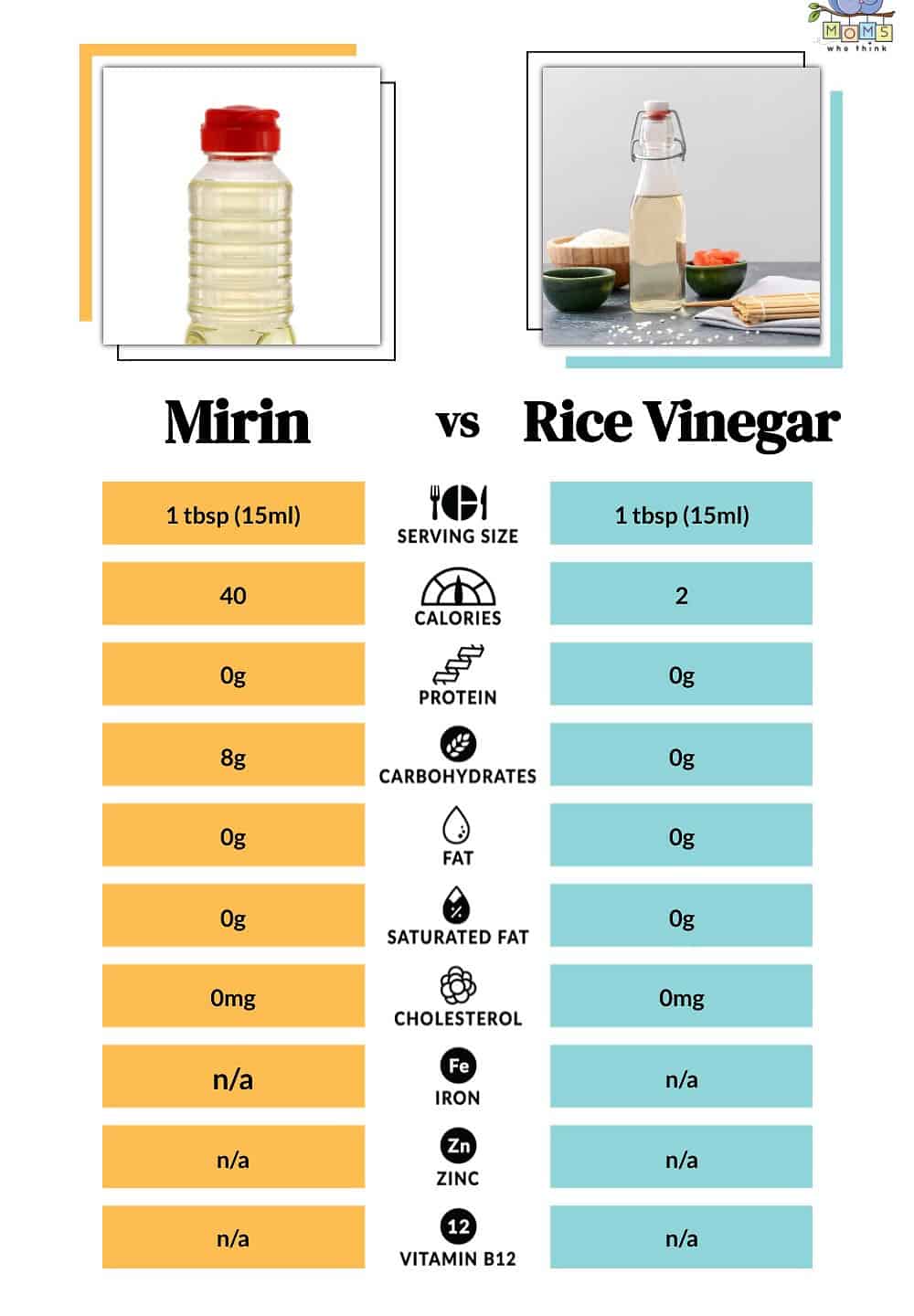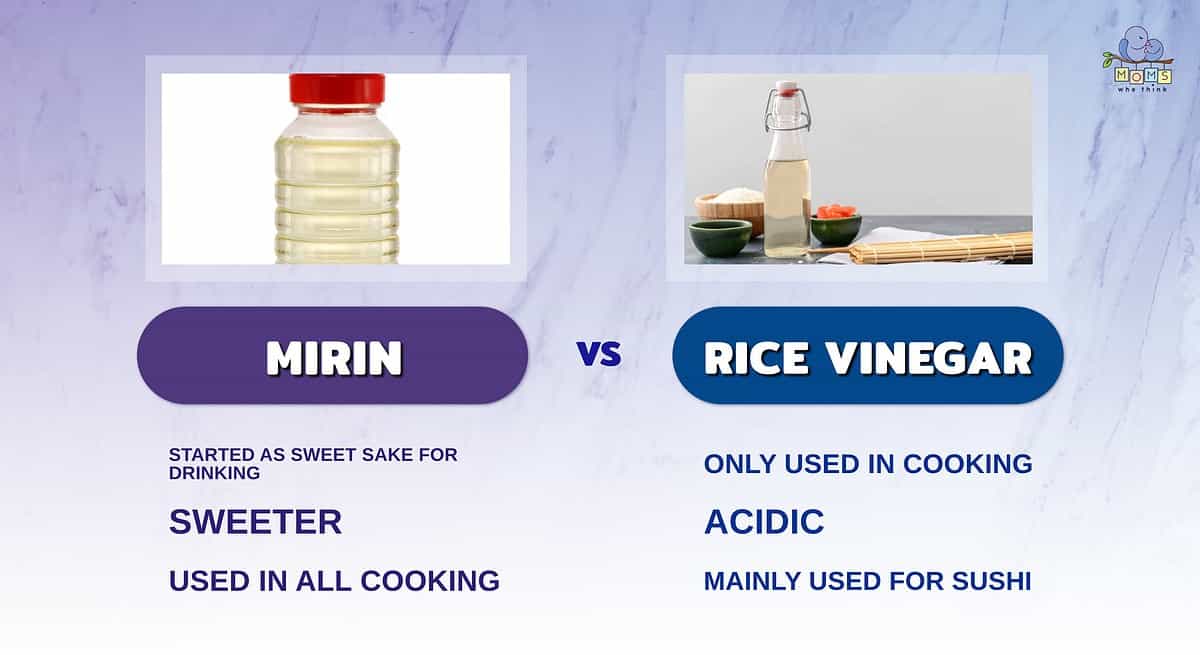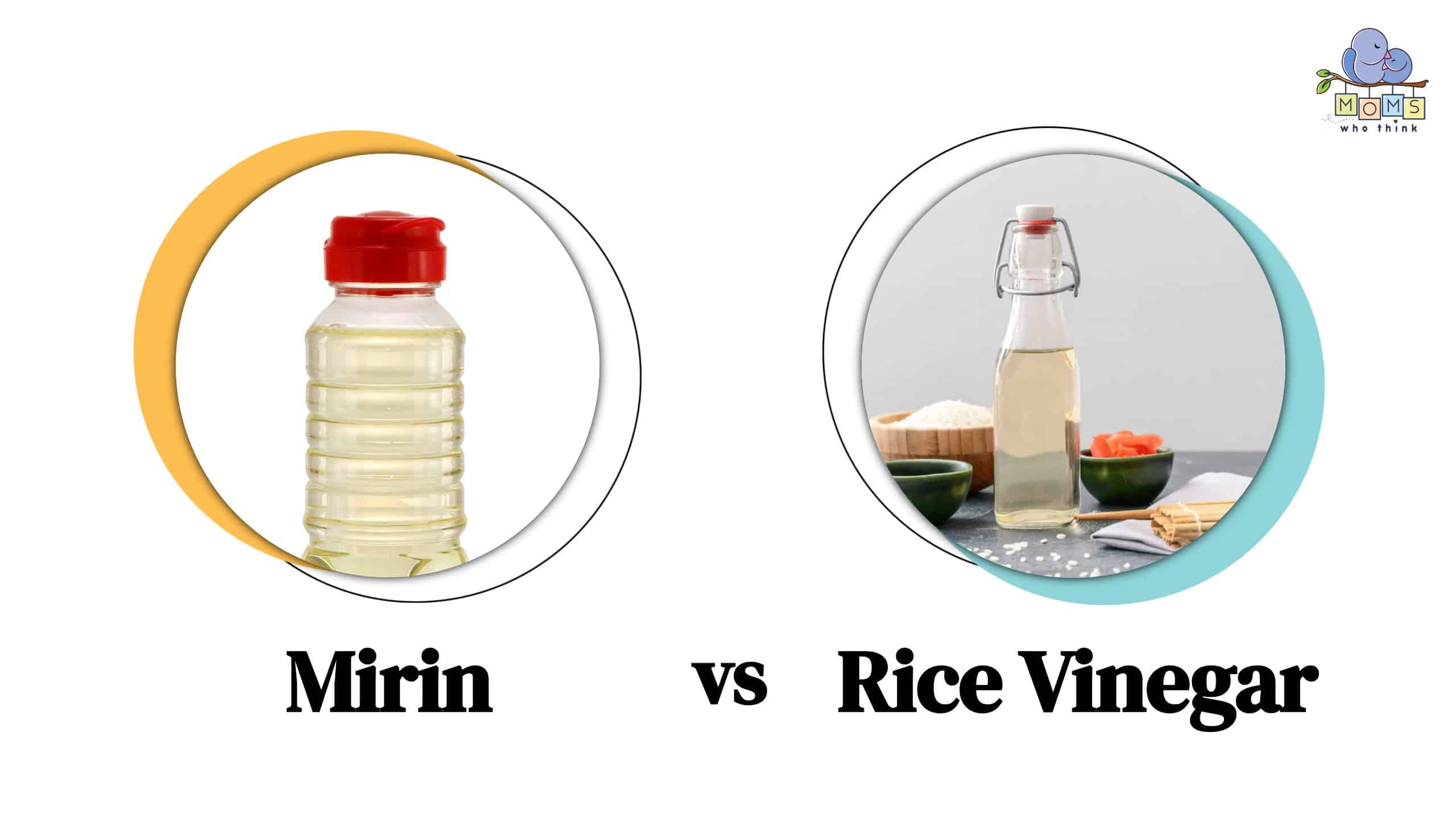Mirin vs. rice vinegar? Is there a difference? Yes, there's quite a significant difference between these fermented ingredients. The difference is notable, especially if you want to make something sweeter and alcoholic.
Mirin and rice vinegar's origins come from Japan. Mirin has origins as far back as the sixteenth century. It's recognized as sweeter because it comes from rice malt. For rice vinegar, its origins date back to the 4th and 5th centuries in Japan. Since then, it's become a popular staple in Japan for making sushi, salads, and other dishes.
In this guide, you'll see more of the unique differences that separate mirin and rice vinegar. You'll discover what makes them different when it comes to taste and if they improve your overall health.
What Mirin and Rice Vinegar Are Best Used For

©
The history of mirin dates back over to the sixteenth century. One of the most interesting things about mirin is that it was originally used as a sweet sake for drinking. Since then, it has become a food seasoning. For white rice vinegar, it dates back to China before it became prevalent in Japan. It was eventually introduced to Japan in the 4th century. It has also become popular in Korea and Vietnam.
Although mirin and white rice vinegar are in East Asia, they have continued to spread worldwide. They are used for different cooking recipes and even cleaning. Learning how they have developed and what they are most commonly used for offers insight into how to use them.
As a Japanese cooking oil, mirin is best used for stir fry, marinades, and creating different sauces for salads or fried dishes. One of the most underused ways of using Mirin, especially since it's sweeter, is for cooking meats. It can be used as a sweeter glaze for barbecues. An interesting fact about mirin is that it's one of the main ingredients in teriyaki sauce. It's also a great additional ingredient for soups.
Here are some more creative ways to add Mirin to your recipes:
- Mirin added to steamed food to make it a sweeter
- Creating a dipping sauce with mirin
- Marinate your steak or chicken with a mirin baste
These are just some ideas you can use to cook with mirin. There are also plenty of other things you can experiment with when using Mirin if you want to make your food a bit sweeter.
Compared to mirin, rice vinegar has more acidity. While it's also used for stir fry, soups, and salads, the purpose is to make it more acidic, not sweet. One of the most unique things about rice vinegar is that there are various kinds of rice vinegar.
- White rice vinegar
- Red rice vinegar
- Brow rice vinegar
- Seasoned rice vinegar
- Black rice vinegar
Each of these offers a different taste ranging from making sushi rolls, cleaning around the house, or a variety of sauces. They each offer a blend of something unique, whether taste or a household item. Even better, a lot of these rice vinegar can be substituted for one another.
The process of making rice vinegar is fascinating. It's made by fermenting rice wine. As the process develops, the sugars in the rice are turned into alcohol. However, because there's additional processing, the alcohol is therefore removed from the rice vinegar. In contrast, mirin has an abundance of alcohol, typically consisting of 14%.
The Health Differences Between Mirin and Rice Vinegar

©
Mirin and white rice vinegar both have an abundance of healthy benefits.
They both have antioxidant properties that help boost your overall immunity. They also both aid in digestion and blood sugar regulation. However, if you're trying to decide which is healthier, white rice vinegar is the clear winner.
White rice vinegar distinguishes itself by having significantly more health benefits. For example, it may improve your heart health. It's also known to keep your skin more radiant. It can also act as a liver tonic. Both mirin and white rice vinegar are ultimately great choices for your health. But if you're looking for something that has more benefits, white rice vinegar offers a lot more.
What's the Best and Tastier Option?
The best and tastier option between mirin and rice wine vinegar depends on your cooking. It also depends on if you want alcohol in your food. While both are great for sauces, salads and stir fry, they have unique tastes. Mirin is sweeter, while rice wine vinegar is more acidic. Either way, both are delicious and offer divine health benefits, from digestive health to improving immunity. Either choice will surely add flavor and health benefits to whatever you eat.
Main Differences Between Mirin and Rice Vinegar

Neither is better than the other. Instead, it's to best to focus on what you are making and what flavors you are looking for. For a sweeter stir-fry or Asian-inspired salad, mirin is going to be better. However, if you are making a fresh bowl of rice that needs to clump together a little bit tighter then rice vinegar is going to be your best bet.

